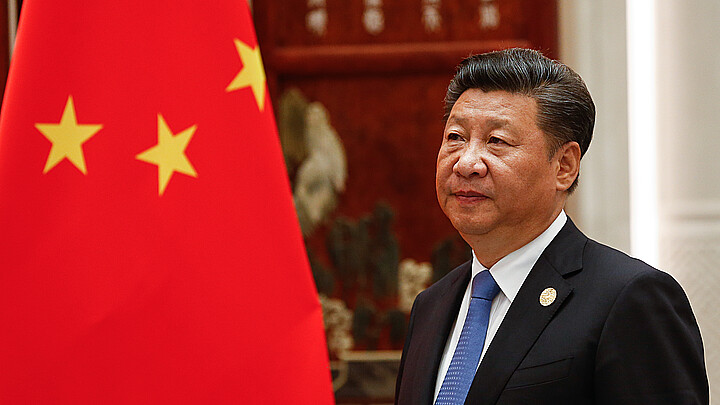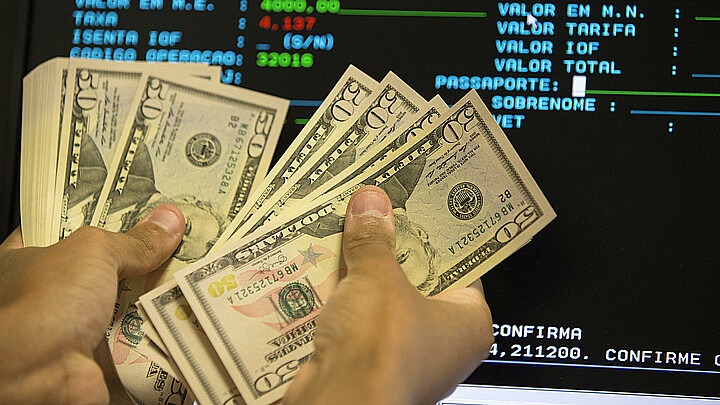Business
Bacardi wins appeal, will return to U.S. district court to reclaim Havana Club brand from communist Cuban regime
The Bahamas-based liquor company won an appeal in the U.S. Court of Appeals for the Fourth Circuit, allowing it to reignite its legal battle over the Havana Club brand

June 17, 2024 4:12pm
Updated: June 18, 2024 10:28am
The Bacardi liquor brand can challenge a federal U.S. Patent and Trademark Office decision that previously ruled in favor of the Cuban dictatorship over the Havana Club brand, according to a recent ruling handed down by the U.S. Court of Appeals for the Fourth Circuit.
The Richmond based federal court said the alcoholic beverage giant could challenge the USPTO ruling in federal court after it renewed the registration of the brand in favor of Cuba state company Cubaexport.
Bacardi challenged the USPTO ruling in a December 2021 lawsuit after the U.S. federal agency renewed the company trademark registration in favor of the Cuban regime sponsored enterprise, despite the Bahamian company arguing that the trademark expired in 2006.
The Bahamian beverage company, which was exiled from Cuba after the 1959 Revolution, says the Castro regime illegally seized the Havana Club name and assets from Jose Arechabala SA in 1960.
Cubaexport first registered the Havana Club trademark in the U.S. in 1976, and Bacardi bought Jose Arechabala's brand and began selling Havana Club rum in the states in 1995.
The company and Cuban regime have since been in a battle arguing that they are each legally entitled to the brand name.
Bacardi argued in its 2021 lawsuit that Cubaexport's trademark expired in 2006 after it failed to pay its renewal fee and obtain a license from the U.S. Treasury Department's Office of Foreign Assets Control.
The USPTO renewed the registration 10 years later in 2016 shortly after OFAC granted Cubaexport a license.
Bacardi responded by arguing it was unfair for USPTO to renew the registration 10 years after the trademark expired, but in April 2022, U.S. District Court Judge Liam O'Grady of the Eastern District of Virginia disagreed.
The Virginia based jurist dismissed the case, claiming that Bacardi could only challenge the trademark through USPTO proceedings.
Now, two years later, a unanimous three-judge panel ruled that Bacardi's lawsuit can continue in the U.S. District Court system. The decision was authored by U.S. Circuit Judge Allison Rushing.
In her ruling, Rushing wrote that U.S. federal law does not prohibit lawsuits over the USPTO's trademark-renewal decisions even though it may preclude court complaints related to the office's registration decisions.
A USPTO spokesperson declined to respond to a media request for comment, while Cubaexport's lawyer, David Bernstein, of the firm Debevoise & Plimpton, stated that the company “is confident that the renewal was valid and that the court will agree when it reaches the merits of this dispute,” Reuters reported.
A Bacardi spokesperson said company was satisfied with the Fourth Circuit Court of Appeals’ decision.
Havana Club, the brand under which the Cuban dictatorship distributes the famous rum with that name outside the island, was illegally seized, by the Castro regime in 1960, along with the assets of the Cuban company José Arechabala S.A. according to Bacardi.
The issue resurfaced in the legal system after November 2023 when Congress passed the “No Stolen Trademarks Honored in America,” which prohibits the U.S. from approving trademarks confiscated by the communist regime.
The legislative intent behind the bill was to protect the interests and rights of private businesses that were victims of the confiscation of assets by the Castros, except in cases in which it is demonstrated that there was clear consent granted by the original owner of the trademark.
The bipartisan legislation, co-authored by Republican Rep. Darrell Issa and Democratic Rep. Debbie Wasserman Schultz has gained the support of 17 other congressional members, including Cuban-American Reps. María Elvira Salazar, Mario Díaz-Balart and Carlos Giménez from Florida.
Bacardi has a separate, pending lawsuit over the USPTO’s rejection of its request to cancel Cubaexport's trademark. That case is Bacardi & Co v. U.S. Patent & Trademark Office, 4th U.S. Circuit Court of Appeals, No. 22-1659.
The Cuban company and French firm Pernod Ricard sell rum with the same name in other countries, even though they have also been prohibited from selling it in the U.S.










